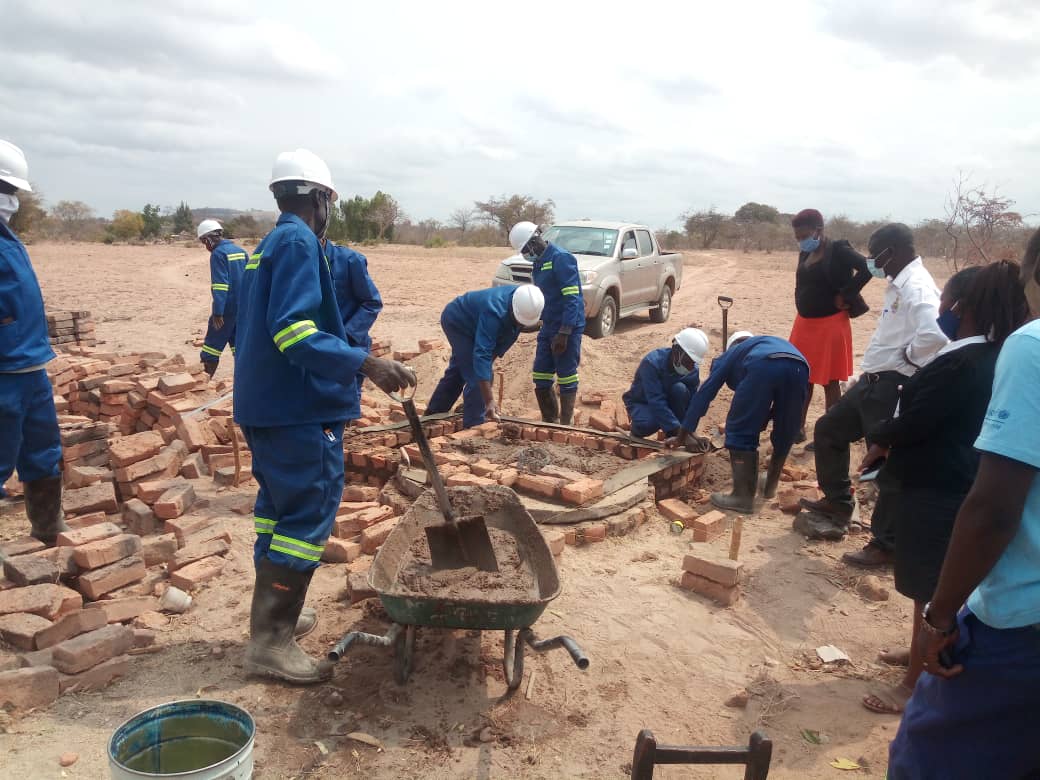Cyclone Idai Recovery Programme
Extract from Unicef WASH Newsletter August 2020
For full report click here
‘COVID-19 has significantly changed the course and way of life in Zimbabwe and continues to impact communities affected by Tropical Cyclone Idai that caused significant loss of life, injury, and displacement in the Eastern Highlands. The ongoing drought within Zimbabwe affected water supplies in some of the Districts with water points reportedly drying up and lower water tables increasing the vulnerability of cyclone-affected communities. The Zimbabwe Idai Recovery Project (ZIRP) is a three-year resilience programme funded by the World Bank and managed by the United Nations Office for Project Services (UNOPS) focusing on recovery, livelihood support, and restoration of community infrastructure and social services and has been mainstreaming COVID-19 into WASH interventions in nine of the most affected districts of Chimanimani, Chipinge, Buhera, Mutare, Bikita, Gutu, Mutasa and Chikomba.’
Household Latrine Construction
Working closely with the Ministry of Health and Child Care, Africa AHEAD supports the training of builders under the ZIRP program for latrine construction. This month Andrew Muringaniza from Africa AHEAD is working in ward 10, 12 and 13 in Gutu district in 5 day practical training to build capacity of community to reconstruct high quality Blair Ventilated Improved Pit latrines (BVIP) latrines (shown above).
‘Sanitation is an important part of community well-being as it guards human health, extending life spans, and protects the environment including drinking water sources. Adequate sanitation investments also contribute to reducing sexual and gender-based violence. In this light the ZIRP program in Gutu is targeting 100 vulnerable households to ensure sanitation facilities are restored among targeted households.’
‘The community of Mudete village joined hands to help Mbuya Tiyemure (aged 81 years) to construct a latrine for her household. For example, Mbuya Tiyemure, is a widow who had her latrine and her two-room house destroyed by Cyclone ldai leaving her with one hut, which she is now using as both bedroom and kitchen. Taking into cognisance her inability to gather all the required materials and lack of manpower to dig the pit, the community supported her by providing her with bricks, river and pit sand and supported her with the required labour throughout the construction process, including fetching water to ensure her latrine could be constructed.

